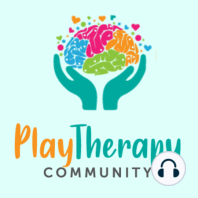20 min listen

48: EMDR Therapy: Helping Children Move Past the Tough Stuff
48: EMDR Therapy: Helping Children Move Past the Tough Stuff
ratings:
Length:
32 minutes
Released:
Mar 23, 2017
Format:
Podcast episode
Description
Episode 48: EMDR Therapy: Helping Children Move Past the Tough Stuff In This Episode: Eye Movement Desensitization and Reprocessing, also known as EMDR, is an effective, research and evidence-based therapy that helps free people from painful memories, anxiety, intrusive thoughts and other disturbances from exposure to trauma or especially disturbing situations. And, it works with children too. In my experience, it often takes less time to notice changes because often children have less tough memories due to their young age, as compared with older clients. When exposed to traumatic events, our minds may not fully understand and process the magnitude of the situation due to the scenario at hand its overwhelming nature. When I mention trauma, I want you to think of it as in “Big T trauma for the big stuff such as witness a crime, etc” and “Little t trauma such as being called a name by a peer, etc” This lack of processing of traumatic events thoroughly can show itself in a debilitating psychological/emotional state of distress. With kids, it can look like night terrors, bedwetting, behavior issues, anxiety, depression, and so on. This state of distress can result in a feeling of being “emotionally stuck”. EMDR Therapy can help with symptoms of distress from living with disorders such as Attention Deficit (Hyperactivity) Disorder (ADHD), Restless Leg Syndrome, Phantom Leg Syndrome, OCD (Obsessive Compulsive Disorder), Eating Disorders, Post-Traumatic Stress Disorder (PTSD), Anxiety, Depression, Tourettes Syndrome, Bed-Wetting, Emotional Regulation Issues, Behavior Concerns, Autism Spectrum Disorder (ASD), Eating Disorders, Disassociative Identity Disorder (DID), and much more. EMDR therapy basically stimulates the mind into reprocessing the events, facilitates resolve from within the person experiencing it, and lessens the emotional impact of the memories. Even if the memories are from before the person can remember it with their thoughts. We actually have memories from up to 3 months in utero that can sometimes stay stuck as emotional memories. EMDR can free individuals from painful memories and empower them to live more fully in the present. This is especially important with our kids, as staying stuck in trauma can impact their development in so many ways. Sometimes, the effect of trauma is misdiagnosed as ADHD since it can leave people feeling distracted, unable to focus and fidgety from anxiety. EMDR is a therapeutic “tool” that can be used in therapy to help our clients overcome barriers to normal functioning, and ultimately, to their happiness. I love using it with kids! Also, EMDR has been shown to alleviate anxiety and depression, which can leave children and their loved ones feeling emotionally anguish. Anxiety and depression can look very different for children than it does adults. Many of my clients have engaged in some type of self-harm, such as cutting, skin picking etc… and EMDR is one of my go-to tools to help them. There are so many ways that it can be performed. With younger kids, I love integrating it with Play Therapy. As a part of the therapy, I have the client identify a negative thought about themselves, notice what they are feeling in their body and provide stimulation to either side of the body by having them move their eyes back and forth (usually with finger puppets or moving a car back and forth), or holding on to buzzers while often wearing earphones that alternate soft beeping in either ear that help desensitize what their feeling and reprocess it into something healthier. For example, a negative thought maybe “I am a bad person” and the reprocessed thought maybe “I’m good enough just as I am.” The healing can be profound. Memories of negative events, whether big T or little t traumas, for children it can be a death, divorce, car accident, fight, etc. can become painfully fragmented into other events resulting in limited enjoyment of life activities. Often it may manifest into an
Released:
Mar 23, 2017
Format:
Podcast episode
Titles in the series (100)
12: Cutting to Cope - Understanding the Emotional Desperation Behind Self-Harm: Jackie Flynn, ED. S, LMHC, RPT by Play Therapy Community